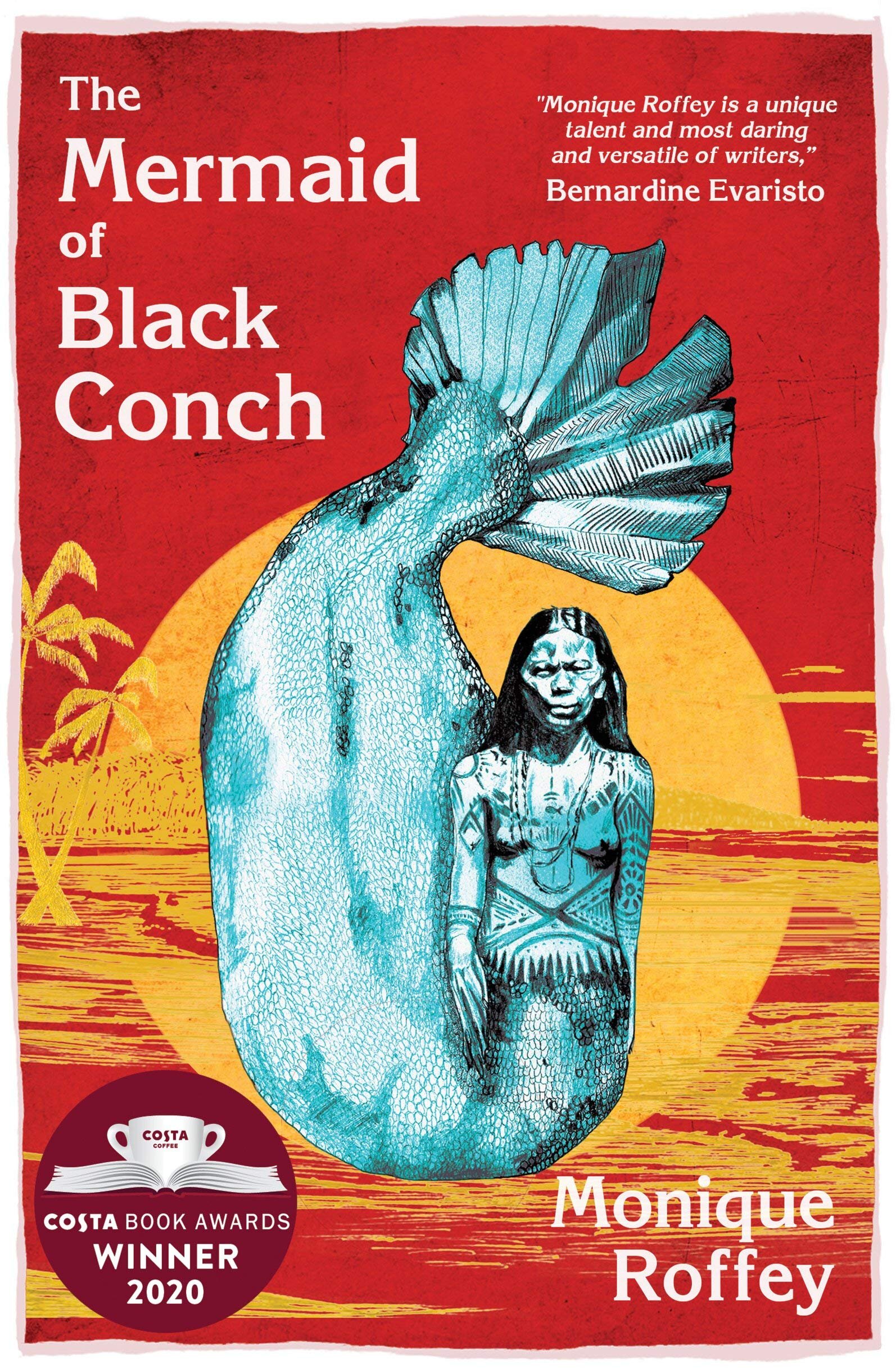Republic of Consciousness Class of 2021: The Mermaid of Black Conch by Monique Roffey (Peepal Tree Press)
Between March 8th and March 19th we will posting ten pieces on our blog celebrating the Republic of Consciousness Prize 2021 longlist. There will be interviews, extracts and articles, with each piece focussing on a longlisted book.
We start with a piece by Monique Roffey on her experience of writing and publishing The Mermaid of Black Conch, which was originally published in April 2020 and has gone on to multiple prize lists and thousands of readers bookshelves.
On Writing the Mermaid
Monique Roffey
All writers know that settling to writing a novel is an act of courage. No one is asking for your book, most often. And it will take time, lots. Never mind, we do it anyway. Most of us even like doing it. It’s what we do, from our debut novel onwards, through to the novels in our difficult middle years, when we are no longer ‘hot’ or ‘new’ (read young). We just keep doing it. The Mermaid of Black Conch is my sixth published novel but there are two others in a drawer, unpublished. So I’ve done this novel writing thing eight times in my life. Crazy, crazy. I know.
I started dreaming the mermaid first, always a good sign. An old fashioned Jungian, I believe in dreaming a novel up. When ideas present themselves via signs and symbols, syncretic happenings and coincidences, and dreams, then I pay attention. My first dream came in 2013 while I was staying in Charlottteville, northern Tobago, when a fishing competition was being held. I dreamed of her caught and lynched from the gallows on the jetty, hanging upside down, her hair a nest of fiery, lethal tentacles and sargassum seaweed. She was gagged and bound, her mouth taped. That dream kept evolving, each time more detailed. I’d always loved Neruda’s The Mermaid and the Drunks. In it, a mermaid changes back into a woman and clambers back onto land. She stumbles into a tavern, naked, and is ridiculed and defiled. I also knew Columbus had written that he’d sighted mermaids on one of his voyages, and then I came across the Taino legend of Aycayia. In 2016, I settled to writing the book that is now published by Peepal Tree Press. After lots of experiments with POV and the mermaid’s voice, I made a few technical decisions and was off. It tumbled out, dare I say, (as a New Ager might), as if channelled. Years of spending time by the sea and the people I met, all fused into a patchwork narrative of many parts. It didn’t take long to write.
It’s no secret that The Mermaid of Black Conch was turned down by every UK mainstream publisher. Or that I crowd funded for a publicist when the mermaid went out into the world from the indie sector, proudly with PTP. Thank God for the indie presses. Jeremy Poynting is probably the UK’s or even the world’s most experienced editor when it comes to working with Caribbean writers. I knew I was in safe hands. TMOBC also attracted a touring grant from the Arts Council. I had medium high hopes for my book, had armed it as best I could. Then, it was launched on April 2nd, 2020, as the peak of the first wave of Covid-19 was about to hit. My novel more or less fell into a chasm. I was upset for about ten days. But it was so apparent something much bigger than by mermaid novel was happening. I took the hit and decided it was okay. My novel was overwhelmed by an historic event, a pandemic of epic scope. Fine. Many other novels and non fiction books fell into the same Covid hole last April. Various big name writers were astonishingly generous and came forward to help, including Bernardine Evaristo, Nikita Gill and David Nichols, all offering their social media platforms as support. Bernardine even got the mermaid on Richard and Judy. I was utterly grateful. What a thing. I loved how the writing community responded, with warmth and support to fellow writers who’d suffered this blow. I saw it happening time and time again, big names stepping in to help us, those who’d published books in those bleak early months of the pandemic. I didn’t know Nikita or David, they’d no reason to help me. They just wanted to.
Then something happened. The all-female Caribbean bookstagrammers started to chat and rave online about my book. This was good news. It’s important to feel appreciate by the home girls. They were giving the mermaid the thumbs up. Then, astonishing, I got a call from my publisher: The Mermaid of Black Conch had been shortlisted for the Goldsmiths Prize, 2020. Stunned. Out of nowhere. Cool. Later, when we heard news of the Costa shortlisting, we were amazed too. Again, this was validation and praise for a book which was roundly rejected by the mainstream. The big win for the Costa Book of the Year and other prize listings have been wonderful. Again, the book was rejected and then fell into the Covid crater. So, to have a sudden upsurge in fortunes has indeed been gratifying. The Republic of Consciousness Prize longlist feels auspicious too. There’d be no mermaid if it weren’t for the independent sector in the publishing world. I thank Peepal Tree Press every day for getting my book into the world. The RofC prize is for all the experimental, other-worldly stories like mine, written in creole or God knows what, and maybe, like mine, with magical creatures with a made up language, or written back to front if that’s what the author wishes to do, but mostly it’s for writers like me, who just keep writing, no matter what.
The Mermaid of Black Conch by Monique Roffey is available here from Peepal Tree Press.

